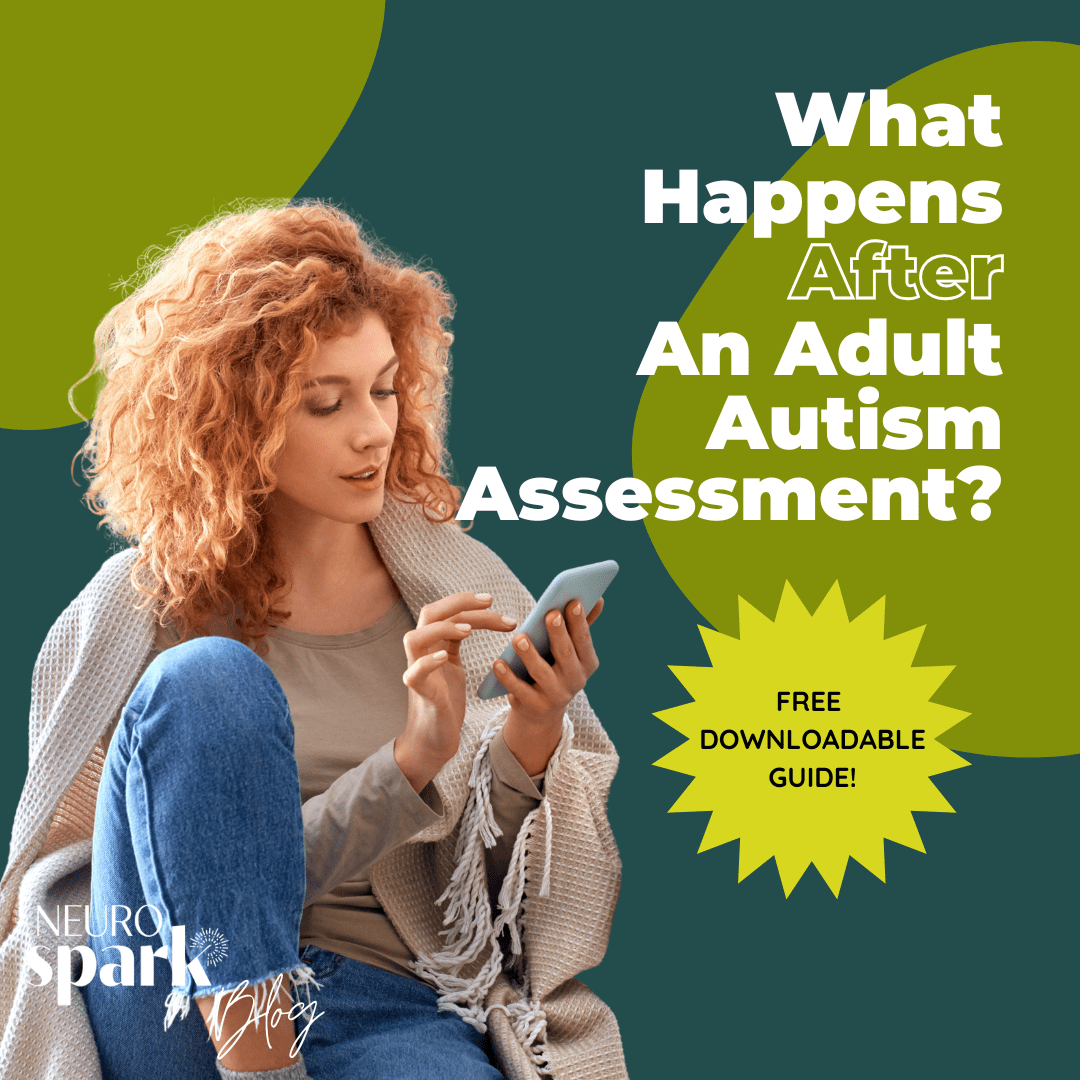
What Happens After an Adult Autism Assessment?
Receiving an adult autism diagnosis is often life-changing, but what happens next? If you’re feeling relief, overwhelm, confusion, or even grief, you’re not alone. The assessment may be over, but the journey is just beginning. And it’s okay (and completely normal and expected!) if you don’t have it all figured out yet.
In this guide, we’ll explore what typically comes after an autism assessment for adults, including:
Processing emotions
Understanding your diagnostic report
Exploring support options
Making decisions about disclosure
Unmasking at your own pace
Finding community
And most importantly, figuring out what works for you
Emotional Reactions are Normal and Valid
After an autism diagnosis, people often describe a rush of mixed emotions: relief, grief, clarity, even self-doubt. It’s common to revisit past experiences and wonder how things might have been different with earlier support.
Some people feel energized and empowered, while others feel tired, disoriented, or sad. Many feel all of the above. There’s no ‘right’ way to feel. Give yourself time and space. Diagnosis is not the end. It’s really just the beginning of understanding yourself and your brain more clearly.
Free Download: Next Steps After an Autism Diagnosis
Feeling overwhelmed or unsure where to begin? We created this free printable resource just for newly diagnosed autistic adults.
Practical tips
Gentle affirmations
Therapy + coaching guidance
Next Steps After An Autism Diagnosis
Understanding the Results
If you were assessed at NeuroSpark Health, your provider probably talked you through their findings, which may include:
Traits consistent with autism (and how they show up for you)
Strengths and challenges
Co-occurring conditions (like ADHD, anxiety, etc.)
Personalized recommendations for support
Even if you didn’t meet full diagnostic criteria, the findings from the evaluation are still valuable. Most of our clients resonate with at least some autistic traits and benefit from resources and strategies created specifically for neurodivergent adults.
Unpacking the Report
A comprehensive report can feel overwhelming at first. Here are our tips for processing all of that information:
Expect to feel a rollercoaster of emotions, again
Highlight sections that speak to you
Note any “aha!” moments
Read it more than once
Share it (if you want to) and discuss with your therapist, doctor, or partner
What If You Didn’t Get a Diagnosis?
Sometimes, people go through an assessment and do not receive a formal autism diagnosis. This doesn’t mean you imagined things. It may mean:
You don’t quite meet diagnostic criteria and instead may be better described as what some call the “broader autistic phenotype” or BAP
Another explanation better fits your experiences (e.g., cPTSD, ADHD, sensory processing differences)
Regardless, you can still explore autism resources or other options that support your needs. And self-identification is always valid.
What About Telling People?
One of the biggest questions post-diagnosis is Should I tell anyone? How do I disclose autism to people? Here’s the answer: only if it feels safe or helpful for you.
There’s no rulebook for disclosure. Some people share openly, others tell just one trusted person, and some don’t disclose at all. You don’t have to decide right away. It’s okay to take your time and revisit the decision later.
Unmasking Takes Time
Masking refers to the mental and emotional effort autistic people often put into appearing “normal” or neurotypical. After a diagnosis, you may start noticing just how much you’ve been masking—at work, socially, even at home.
Unmasking isn’t about giving up on functioning; it’s about dropping the parts that cost you too much.
Support Options After an Autism Diagnosis
Here are some next steps that can help you feel grounded and supported after an adult autism diagnosis:
Coaching or Therapy
Look for providers who specialize in autism-affirming care. You don’t need any treatment for autism, but you may want help navigating burnout, boundaries, or self-understanding.
Accommodations
Start by noticing what parts of your life feel unsustainable. From there, explore small shifts in your environment, work expectations, or daily routines.
Peer Support & Community
You don’t have to navigate this alone. One of the most powerful forms of support after diagnosis is simply hearing “me too” from people who truly get it. Whether you're exploring your identity, grieving past misunderstandings, or figuring out next steps, community can help normalize your experience.
At NeuroSpark Health, we host two affirming Facebook groups:
Big Feelings, Little Executive Function
– An open space for all neurodivergent adults
NeuroSpark Community
– A private group just for NeuroSpark Health clients
You're welcome in both. Whether you're active or just reading, you belong there. You don’t have to be “further along” to join the community. You just have to show up as you are.
What About Burnout?
Many adults experience autistic burnout, especially after receiving a diagnosis. You might be realizing just how long you've been masking, pushing yourself, or trying to navigate an unsupportive world without the right tools. That kind of chronic stress takes a toll.
If you're feeling emotionally raw, physically exhausted, or detached from things you normally care about, you may be in burnout. You're not broken. You’re depleted. But recovery is possible.
At NeuroSpark Health, we offer a dedicated burnout recovery group called Glimmer—a space to gently rebuild your energy, reconnect with your needs, and explore rest without guilt. It’s low-pressure, community-based, and guided by affirming providers who’ve been there, too.
Autistic Burnout: Signs, Causes, and Recovery Strategies
Keep Exploring: What Comes After an Autism Diagnosis?
Understanding yourself and your life from a neurodivergent lens is transformational. These blogs can help you keep learning, unmasking, and connecting:
Need Support?
NeuroSpark Health offers post-diagnosis coaching with neurodivergent-affirming providers. You’re not alone in this. Ever.
Book a Session or Learn More About Our Post-Diagnosis Support Services








